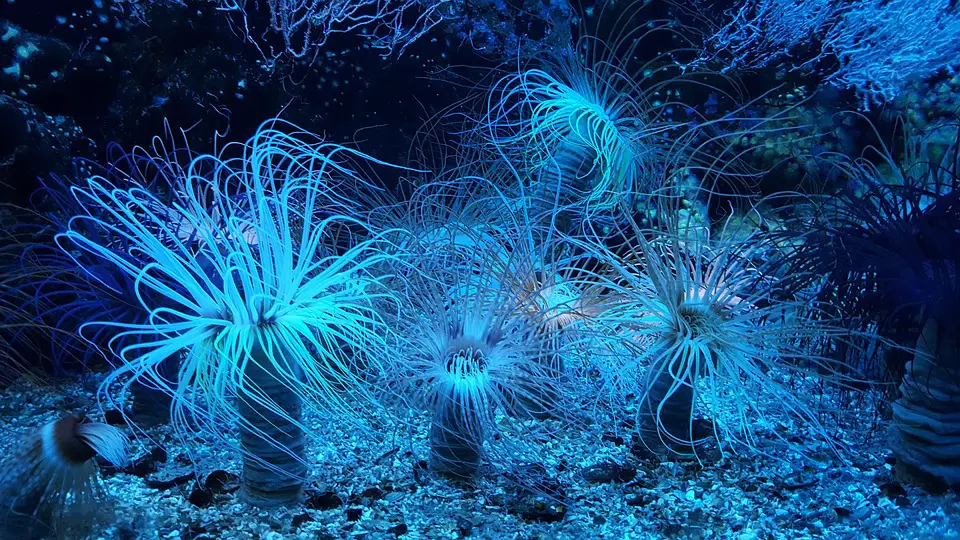Scuba diving is an exciting adventure that allows you to explore the depths of the ocean. Whether you’re a beginner or an experienced diver, having the right scuba gear is crucial for a safe and enjoyable dive.
In this article, we will discuss the top 10 must-have scuba gear items that every diver should consider investing in.
Table of Contents
1. Dive Mask
A good quality dive mask is essential for clear vision underwater. It should provide a comfortable fit and a watertight seal. Look for a mask with tempered glass lenses for better clarity, adjustable straps, and a low-volume design to minimize drag.
2. Snorkel
A snorkel allows you to breathe on the surface without wasting air from your tank. Look for a snorkel with a comfortable mouthpiece and a purge valve that makes it easy to clear any water that enters the snorkel.
3. Dive Fins
Dive fins help you to move efficiently through the water. Choose fins that are comfortable, fit well, and have an appropriate length and stiffness for your diving style. Open-heel fins with adjustable straps are recommended for versatility and ease of use.
4. Wetsuit or Drysuit
A wetsuit or drysuit is essential to protect you from the cold water and provide thermal insulation. The choice between a wetsuit or drysuit depends on the water temperature and your personal preference. A wetsuit is suitable for warmer waters, while a drysuit is ideal for colder temperatures.
5. Buoyancy Control Device (BCD)
The BCD is the scuba diver’s flotation device, allowing you to control your buoyancy underwater. Choose a BCD that fits well and has enough lift capacity to support your body weight and additional gear. Look for features like integrated weight systems and convenient pockets for storage.
6. Regulator
A regulator is a vital piece of scuba gear that allows you to breathe underwater. Look for a regulator that provides smooth and easy breathing, even at greater depths. Consider features like adjustable airflow and environmental sealing to prevent water entry.
7. Dive Computer
A dive computer is a must-have device for tracking your dive profile and ensuring your safety. It provides real-time information on depth, time, and decompression limits. Look for a dive computer with a user-friendly interface, clear display, and advanced features like nitrox compatibility.
8. Dive Knife
A dive knife is a versatile tool that can come in handy during emergencies, entanglements, or cutting fishing lines. Choose a dive knife with a secure sheath, a durable blade, and a comfortable grip. Consider a stainless steel or titanium blade for durability and resistance to corrosion.
9. Dive Light
A dive light is essential for exploring the underwater environment, especially in dark or low visibility conditions. Look for a dive light with a bright and adjustable beam, long battery life, and a durable construction that can withstand the water pressure. Choose between handheld or mounted lights based on your preferences.
10. Surface Marker Buoy (SMB)
An SMB is a vital safety device that helps you to signal your location to boats or other divers at the surface. Choose an SMB that is brightly colored, easily inflatable, and has a reliable mechanism to secure it to your BCD. Consider getting a reel or spool for convenient deployment and retrieval.
Q: Can I use prescription lenses in my dive mask?
A: Yes, many dive masks offer prescription lens options or have frames that can accommodate prescription lenses. Consult with your dive shop or optometrist to determine the best solution for your vision needs.
Q: How often should I service my scuba gear?
A: It is recommended to have your scuba gear serviced annually or according to the manufacturer’s guidelines. Regular maintenance ensures that your gear is safe, reliable, and performing optimally.
Q: Can I rent scuba gear instead of buying it?
A: Yes, many dive shops and resorts offer gear rental services. Renting gear can be a convenient option, especially if you’re traveling or diving infrequently. However, owning your own gear provides familiarity and ensures proper fit and hygiene.
Q: Are there any specific safety precautions I should take when using scuba gear?
A: Absolutely. Always follow proper training and certification guidelines. Ensure that your gear is properly maintained and functioning before each dive. Practice buoyancy control and respect marine life and the environment. Never dive beyond your training and experience level.
Q: Can I use scuba gear for snorkeling?
A: Yes, you can use scuba gear for snorkeling, although some items like dive tanks and regulators may not be necessary. However, it is important to consider the additional weight and bulkiness of scuba gear compared to traditional snorkeling equipment.





